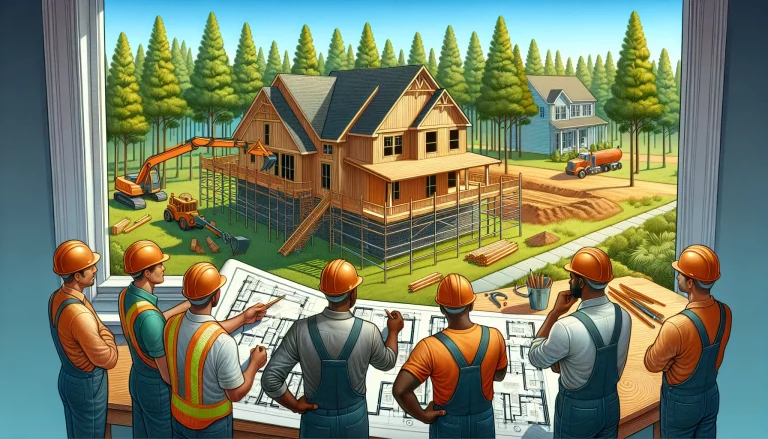Key Takeaways
- Understanding Sale Time: The average time to sell a house in 2025 ranges from 30 to 90 days, influenced by factors like market conditions and property desirability.
- Market Conditions Matter: Selling in a seller’s market can mean quick sales, while buyer’s markets might lead to longer timelines due to oversupply and varying buyer interest.
- Property Condition Is Key: Well-maintained and staged homes attract buyers faster; investing time in repairs can prevent delays and enhance appeal.
- Strategic Pricing: Setting a competitive price based on market analysis is crucial; slightly underpricing can spark interest and lead to quicker offers.
- Location Influences Sales: Homes in desirable neighborhoods and urban areas typically sell faster than those in less sought-after regions, affecting overall sale time.
- Timing Your Listing: Spring and summer often yield quicker sales due to higher buyer activity, while seasonal trends can offer unique opportunities for sellers.
Selling a house can feel like a daunting task, especially when we’re eager to move on to the next chapter of our lives. So, how long does it actually take to sell a house in 2025? The timeline can vary widely based on several factors, including market conditions, location, and how well we prepare our home for sale.
Understanding the average selling time can help us set realistic expectations and navigate the process more smoothly. From listing the property to closing the deal, we’ll explore the key stages involved and what influences the speed of a sale. Whether we’re selling for the first time or looking to streamline our next move, knowing what to expect can make all the difference in achieving a successful sale. Let’s dive in and uncover the insights that will guide us through this journey.
Factors Influencing Sale Time
Various factors impact how long it takes to sell a house. Understanding these elements can help us gauge the selling process more accurately while setting realistic expectations.
Market Conditions
Market conditions play a critical role in the selling timeline. In a seller’s market, where demand exceeds supply, homes may sell in weeks or even days. Conversely, in a buyer’s market, prolonged listing times can happen due to an abundance of available properties. Recent trends indicate that mortgage rates also affect market dynamics; as rates rise, buyer interest may decline, lengthening the sale process. We should consider leveraging local market data and staying informed about economic indicators to understand current conditions better.
Property Condition
The condition of our property significantly influences selling time. Well-maintained homes typically attract buyers more quickly than those requiring extensive repairs or updates. Staging a home effectively can enhance its appeal; 80% of buyers might find a staged home more inviting and easier to envision living in. Additionally, conducting necessary inspections and addressing potential issues upfront can prevent delays later. A clean, organized, and presentable property often leads to faster offers, meaning attention to detail matters in this often competitive environment.
Location
Location remains a key factor in the speed of home sales. Homes situated in desirable neighborhoods, close to schools, shopping, and amenities, often sell more quickly than those in less sought-after areas. According to available data, properties in urban areas typically sell in less time than those in rural or suburban regions. Proximity to public transportation and low crime rates can also enhance a property’s desirability. Understanding local demographics and trends can guide us in making strategic improvements to our property, helping it stand out amidst various options.
Pricing Strategy
Our pricing strategy directly affects how quickly a house sells. Setting the right price requires thorough market analysis, comparing similar properties, and factoring in local economic trends. Homes priced slightly below market value may generate more interest and lead to multiple offers, thereby shortening the sale time. Conversely, overpricing can deter potential buyers, resulting in longer wait times. Consulting with real estate professionals or using data-driven pricing tools can aid in devising competitive pricing strategies, ultimately helping us achieve a successful sale sooner.
Typical Timeframes

Selling a house involves several stages, and understanding typical timeframes helps us set realistic expectations. From listing to closing, various factors can influence how long the process takes. Below, we outline national averages and regional differences that impact the time it takes to sell a house.
National Averages
Nationally, the average time to sell a house is approximately 30 to 90 days. In a competitive market, homes may receive offers within the first two weeks of listing. According to the National Association of Realtors, homes in desirable areas tend to fall on the shorter end of this spectrum, whereas properties needing extensive repairs often linger longer on the market. Understanding these averages aids us in gauging when to expect offers and planning our next steps effectively.
Variations by Region
Regional differences significantly affect selling times. For instance, homes in urban areas often sell faster due to higher demand, with average times ranging from 20 to 60 days. In contrast, rural homes might take 60 to 120 days to sell, reflecting a different buyer pool and market conditions. Local economies play a crucial role, too; regions experiencing job growth or a real estate boom typically see quicker sales. Recognizing these variations prepares us for realistic timelines based on our specific location.
Seasonal Trends
Selling a house seasonally influences the overall timeline. In spring and summer, many buyers actively search, resulting in expedited sales—often 20% faster than during fall and winter months. Homebuyers tend to prefer moving when weather conditions are more favorable and children are out of school. However, listing during the off-peak season can sometimes yield less competition, offering unique opportunities for sellers. Assessing these trends helps us time our listings strategically to maximize buyer interest and minimize time on the market.
Steps to Sell a House
We understand the complexities of selling a house and have outlined clear steps to ensure an efficient process.
Preparing the Home
Preparing the home is crucial for attracting potential buyers. We assess the property’s condition and consider minor repairs, decluttering, and staging to enhance its appeal. Setting a competitive price based on a comparative market analysis ensures we position the home effectively within the current market landscape. For example, freshly painted walls, a cleaned yard, and updated fixtures can create a lasting impression, leading to quicker offers. We focus on creating a welcoming atmosphere that highlights the home’s best features, allowing buyers to envision themselves living there.
Marketing Strategies
Effective marketing strategies significantly influence the speed of a sale. We utilize multiple channels including online listings, social media platforms, and traditional advertising to maximize visibility. High-quality photographs and engaging descriptions play a vital role in attracting interested buyers. For instance, virtual tours offer a comprehensive view of the property, appealing to remote buyers. Additionally, we target specific demographics based on location and property type to ensure marketing efforts reach the right audience.
Open Houses and Showings
Open houses and individual showings serve as opportunities for buyers to explore the property firsthand. We schedule these events strategically, ensuring they align with peak buyer activity times. During these events, we create an inviting atmosphere, allowing potential buyers to ask questions and feel comfortable. Providing informative leaflets that outline key features and the neighborhood can enhance their understanding. We remain available to address concerns, making a personal connection that can encourage offers. Engaging buyers in meaningful dialogue highlights the property’s unique benefits and reinforces our commitment to facilitating their decision-making process.
Tips for a Faster Sale

We understand that achieving a quicker home sale is essential for many homeowners. Implementing strategic approaches can substantially reduce the time on the market and maximize potential offers.
Setting the Right Price
Setting the right price remains crucial for selling a house quickly. A competitive price attracts more buyers and generates interest, often leading to faster offers. We recommend conducting a comparative market analysis (CMA) to evaluate recent sales of similar properties in the area. If comparable homes sold for a certain range, pricing your property within or slightly below that range can create urgency among potential buyers. Additionally, avoid overpricing, as this can scare off serious inquirers and prolong the selling process. A well-priced home not only facilitates quicker sales but also can lead to bidding wars, ultimately increasing the final sale price.
Enhancing Curb Appeal
Enhancing curb appeal plays a significant role in making a positive first impression on buyers. According to real estate professionals, homes with attractive exteriors sell 7% faster than those lacking appeal. Simple upgrades like fresh paint, well-maintained landscaping, and a tidy entrance can significantly improve how buyers perceive the property. Lighting and exterior maintenance also matter; a well-lit, clean environment invites exploration and inquiries. Don’t overlook the power of staging as well; a charming outdoor space can serve as an enticing platform for outdoor gatherings, showcasing the home’s potential for family enjoyment.
Effective Negotiation Tactics
Utilizing effective negotiation tactics can expedite the sale process and enhance outcomes. Establishing clear communication with buyers fosters trust and transparency. We suggest preparing to respond promptly to offers with a proactive mindset. If an offer seems below expectations, articulating the home’s unique features and recent improvements helps reinforce its value. Additionally, being open to compromise on minor terms can facilitate a smoother negotiation process. Understanding the buyer’s motivations allows us to tailor our approach; a flexible seller often finds success in keeping the selling momentum strong rather than stalling negotiations and risking lost opportunities.
Seeking our guidance in these key areas can simplify your sale process and help achieve your real estate goals more efficiently.
Conclusion
Selling a house in 2025 requires a clear understanding of the various factors that can impact the timeline. By preparing our home effectively and setting a competitive price, we can significantly enhance our chances of a quicker sale.
It’s crucial to stay informed about market conditions and seasonal trends, as these can greatly influence buyer activity. With the right strategies in place, we can navigate the selling process with confidence and set ourselves up for success.
Embracing these insights will not only help us manage expectations but also empower us to make informed decisions throughout our selling journey.
Frequently Asked Questions
How long does it typically take to sell a house in 2025?
The average time to sell a house in 2025 is between 30 to 90 days. In competitive markets, sellers often receive offers within the first two weeks, while homes in rural areas may take longer, typically 60 to 120 days.
What factors influence the selling time of a house?
Selling time is influenced by market conditions, the property’s condition, location, and seasonal trends. A well-maintained home in a desirable neighborhood typically sells faster, while the local market being a seller’s or buyer’s market also plays a crucial role.
How can I prepare my house for a quicker sale?
To prepare your house for a quick sale, assess its condition and make necessary repairs. Decluttering and staging the home to enhance appeal is vital. Additionally, consider improving curb appeal to attract more buyers.
Why is pricing important in selling a house?
Setting a competitive price is crucial as it generates interest and increases the likelihood of receiving offers quickly. Utilizing a comparative market analysis helps determine the right price for attracting buyers.
What role does location play in selling a house?
Location significantly affects the selling time, as homes in desirable neighborhoods tend to sell faster than those in less sought-after areas. Urban properties typically sell more quickly than rural ones due to higher buyer demand.
How can marketing strategies speed up the sale process?
Effective marketing strategies, like using online listings and social media, maximize visibility and attract more potential buyers. Hosting open houses and engaging buyers during showings are also key to speeding up the sale process.
What are some tips for achieving a faster home sale?
To achieve a faster sale, set a competitive price, enhance curb appeal, and make simple upgrades. Effective negotiation tactics, such as clear communication and understanding buyer motivations, can also expedite the process.






